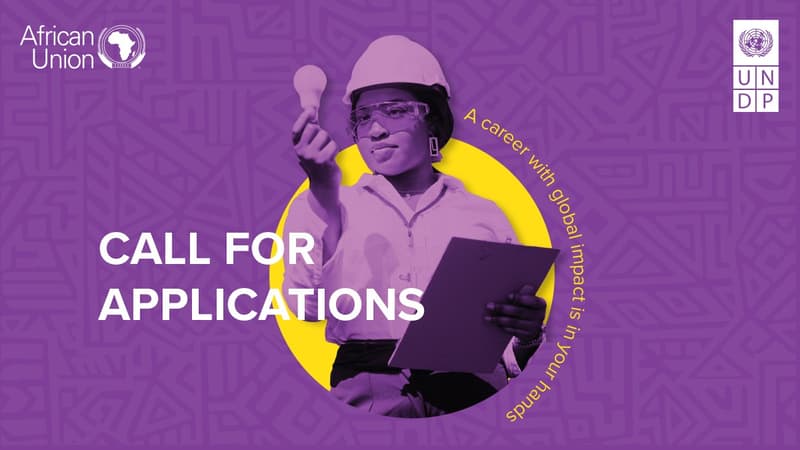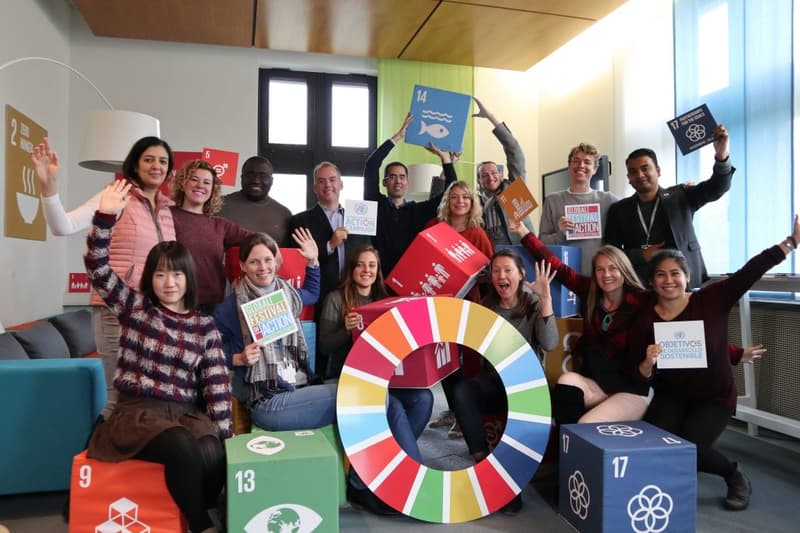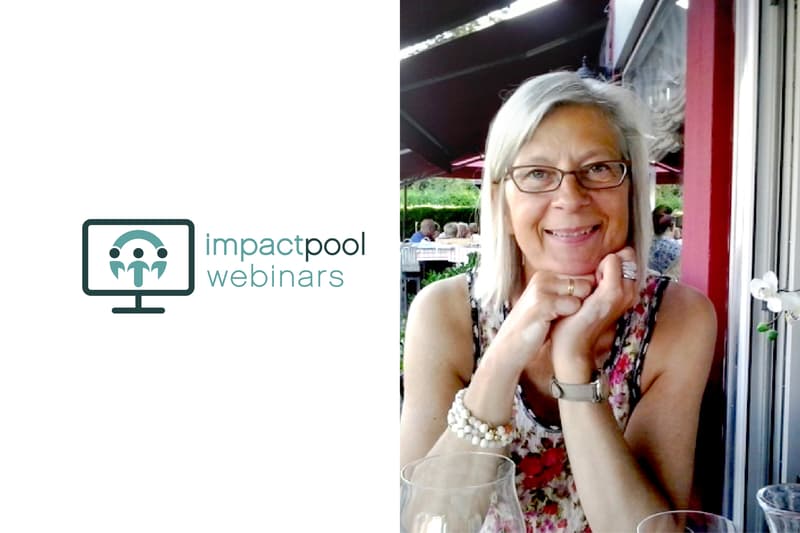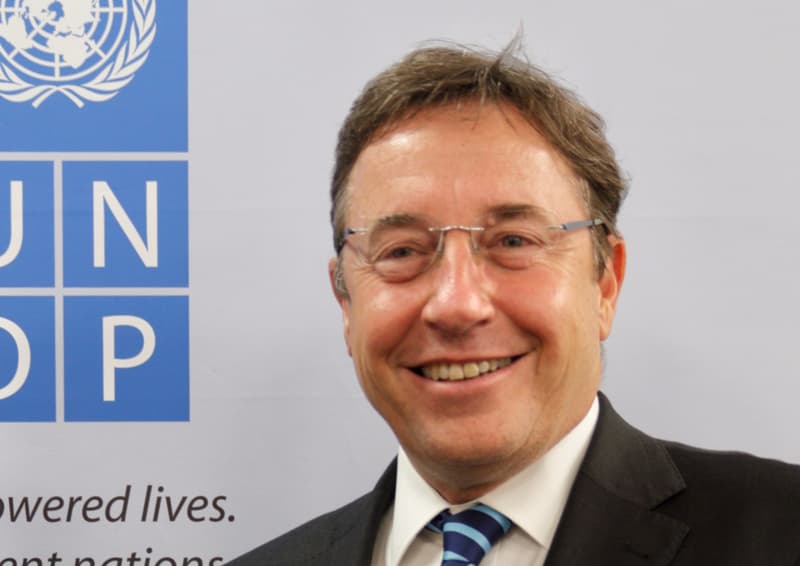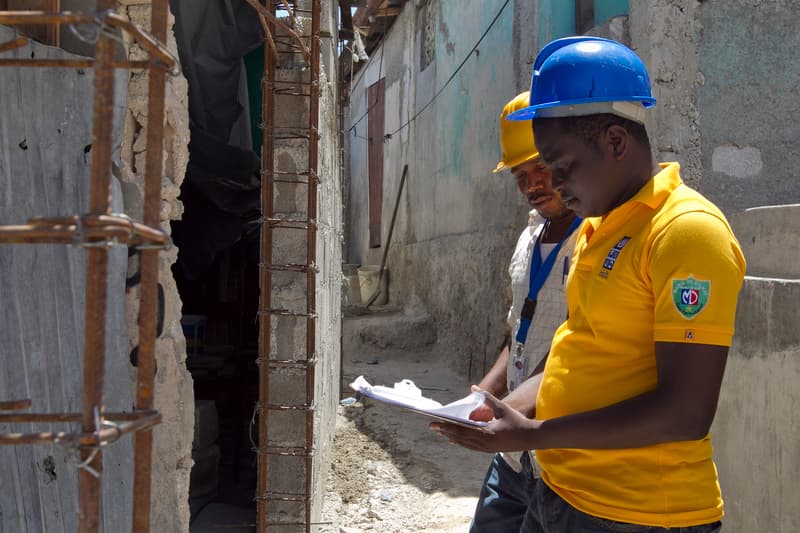Conscious Food Systems Alliance (CoFSA) Program Coordinator
Remote | Panamá
- Organization: UNDP - United Nations Development Programme
- Location: Remote | Panamá
- Grade: Level not specified - Level not specified
-
Occupational Groups:
- Nutrition
- Project and Programme Management
- Food Security, Livestock and Livelihoods
- Managerial positions
- Closing Date: 2024-02-03
Office/Unit/Project Description
UNDP is the knowledge frontier organization for sustainable development in the UN Development System and serves as the integrator for collective action to realize the Sustainable Development Goals (SDGs). UNDP’s policy work carried out at HQ, Regional and Country Office levels offers a spectrum of deep local knowledge to cutting-edge global perspectives and advocacy. In this context, UNDP invests in its Global Policy Network (GPN), a network of field-based and global technical expertise across a wide range of knowledge domains and in support of the signature solutions and organizational capabilities envisioned in UNDP’s Strategic Plan.
Within the GPN, the Bureau for Policy and Programme Support (BPPS) has the responsibility for developing all relevant policy and guidance to support the results of UNDP’s Strategic Plan. BPPS staff provides technical advice to Country Offices; advocates for UNDP corporate messages; represents UNDP at multi-stakeholder fora, including public-private, government and civil society dialogues; and engages in UN inter-agency coordination in specific thematic areas.
UNDP's 2022-2025 Strategic Plan highlighting our continued commitment to eradicating poverty, accompanying countries in their pathways towards the SDGs and working towards the Paris Agreement. As part of the Global Policy Network in the Bureau for Policy and Programme Support, UNDP's Nature, Climate Change, Energy, and Waste (NCE&W) Hubs promote and scale up integrated whole-of-governance approaches and nature-based solutions that reduce poverty and inequalities, strengthen livelihoods and inclusive growth, mitigate conflict, forced migration and displacement, and promote more resilient governance systems that advance linked peace and security agendas.
BPPS’ Hubs on Nature, Climate, Energy and Waste works with governments, civil society, and private sector partners to integrate natural capital, environment and climate concerns into national and sector planning and inclusive growth policies; support country obligations under Multilateral Environmental Agreements; and implement the UN’s largest portfolio of in-country programming on environment, climate change, and energy. This multi-billion-dollar portfolio encompasses:
Biodiversity and Ecosystem Services including forests;
Sustainable Land Management and Desertification including Food and Agricultural Commodity Systems (FACS);
Water and Ocean Governance including SIDS;
Climate Change Mitigation and Adaptation;
Sustainable Energy;
Extractive Industries;
Chemicals and Waste Management;
Environmental Governance and Green/Circular Economy and SCP approaches.
This work advances crosscutting themes on innovative finance, digital transformation, capacity development, human rights, gender equality, health, technology, and South-South learning.
UNDP has developed its new Strategy for Food and Agricultural Commodity Systems (FACS) to focus its vision and enhance its support to transform FACS.
FACS are fundamental to the sustainable development of the 170 countries UNDP supports. FACS are often the largest contributor to their economies; food and nutrition is fundamental for citizen health; and FACS have a key role to play in achieving the SDGs. Yet, FACS are in crisis and need to be radically transformed to become sustainable. UNDP, building on its experience, has for the first time consolidated its FACS support and vision into this Strategy. The challenges and need for change related to FACS have been highlighted by a suite of reports by many research and international organizations and think tanks. The production practices and consumption patterns of food and agricultural commodities are taking these systems on an unsustainable trajectory with multiple impacts on human development, the environment, and economies; from ecosystem degradation, conflicts over land and natural resources, reduced capacity and resilience to climate and other shocks, persistent poverty, food insecurity and related people displacement and migration, to malnutrition including overweight and obesity. There is a clear need to work in a systemic and integrated manner to transform the FACS towards sustainability.
UNDP´s Vision for FACS 2030 is, through partnerships, to transform food and agricultural commodity systems into resilient; equitable; healthy, inclusive; environmentally, socially, and economically sustainable systems. Working on FACS will contribute to not only recovery from the COVID19 crisis, by creating sustainable and resilient livelihoods for many along the FAC supply chains, but also to preventing further zoonoses from emerging in the future. This will require a change in the current paradigm of agricultural production focusing on maximizing productivity to a new paradigm based on diversified agroecological systems which work simultaneously on achieving economic, environmental, social, and health outcomes, with smallholders as a key part of the solution in their role as the engine of economic development. A FACS practice has been established within UNDP’s Nature Hub, which is tasked to support UNDP Country Offices with FACS related challenges in a way that is aligned with UNDP’s FACS strategy.
As part of its work on systems change, the FACS practice has developed the “Conscious Food Systems Alliance” (CoFSA), a movement of food, agriculture, and consciousness practitioners, convened by UNDP, and united around a common goal: to support people from across food and agriculture systems to cultivate the inner capacities that activate systemic change and regeneration. After two years of incubation, the Alliance was launched publicly at the end of 2022 with activities in 2023 focusing on building the CoFSA community, organizing online events, communication, development of trainings and testing implementation through a dedicated Incubator. The CoFSA strategy is focused on two pillars which feed-in and reinforce each other;
Pillar 1 - Convening a Community of Practice and Learning: to build an intentional community of peers supported by a collaborative digital platform where individuals and organizations can connect, learn and exchange knowledge, support and inspire each other, and collaborate to build conscious food systems.
Pillar 2 – Application: Pioneering the application of consciousness approaches and practices through the CoFSA Incubator. CoFSA supports members to apply consciousness approaches and practices across food systems, through a global portfolio of interventions, backed by an Incubator, including the delivery of trainings, coaching and facilitation services, and supported by research and learning frameworks. The CoFSA Incubator supports members in the design, implementation, monitoring and evaluation and funding (when available) of conscious food interventions tapping into the collective intelligence of the COFSA members and delivery partners. It brings the CoFSA vision to life through collective experimentation and learning, with a view to scale up successful experiences.
FACS seeks the services of a Conscious Food Systems Alliance Program Coordinator to lead the coordination of the CoFSA initiative, as well as to support the development of strategic partnerships and resource mobilization activities and the development of CoFSA operations and Strategic initiatives, as per the scope of work.
Scope of Work
1. Coordination of CoFSA initiative:
• Ensure effective coordination of the CoFSA initiative and workplan focusing on quality assurance and risk management from formulation to implementation of activities.
• Contribute to planning, budgeting, implementation and monitoring of the assigned programme areas; and track use of financial resources in accordance with UNDP rules and regulations.
• Support management of team contractual arrangements and support procurement processes, including drafting TORs, participate in assessment processes, participate in interview panels etc., in collaboration with the Programme Administrative Associate and FACS Administration Associate.
• Oversee the preparation and aggregation of reports on activities, outputs and outcomes, including donor and corporate reports.
• Participate in FACS Team activities, such as monthly team meetings, annual retreat, and specific workstreams, as needed.
• Contribute to other project management tasks and support project team members, as and when needed.
2. Strategic Partnerships and Resource Mobilization:
• Support the creation of strategic partnerships and implementation of the resource mobilization strategy.
• Identify and support building and nurturing of partnerships with key partners for CoFSA, based on CoFSA strategic priorities; including civil society organisations (CSOs), UN agencies, international financial institutions (IFIs), government institutions, donors, and private sector.
• Analyze and research information on donors, prepare substantive briefs on possible areas of cooperation, identify opportunities for initiation of new joint activities, develop proposals and substantively contribute to FACS Team resource mobilization efforts.
• Support CoFSA Governance mechanisms, with strategic thinking, as well as preparing and reporting on ‘Inner Council’ meetings and other governance related activities.
3. Support the development of CoFSA operations and Strategic initiatives:
• Contribute with technical advisory to development of key CoFSA workstreams, tasks and products, and actively build and update the Service Offer and integration into FACS Service Offer;
• Support the development of strategic projects and products, through concepts design, presentations, and managing internal UNDP operational processes.
• Support integration of CoFSA in UNDP Global, Regional, and Country activities, in coordination with FACS Team, in particular with Pillar A – Innovation.
Institutional Arrangement
- The incumbent will work remotely from his/her home-base;
- The incumbent will be supervised by the CoFSA Technical Advisor.
- The incumbent will be given access to relevant information necessary for execution of the tasks under this assignment;
- The incumbent will be responsible for providing her/his own workstation (i.e. laptop, internet, phone, scanner/printer, etc.) and must have access to a reliable internet connection;
- Given the global consultations to be undertaken during this assignment, the incumbent is expected to be reasonably flexible with his/her availability for such consultations taking into consideration different time zones.
Competencies
Core
| Achieve Results | LEVEL 1: Plans and monitors own work, pays attention to details, delivers quality work by deadline |
| Think Innovatively | LEVEL 1: Open to creative ideas/known risks, is pragmatic problem solver, makes improvements |
| Learn Continuously | LEVEL 1: Open minded and curious, shares knowledge, learns from mistakes, asks for feedback |
| Adapt with Agility | LEVEL 1: Adapts to change, constructively handles ambiguity/uncertainty, is flexible |
| Act with Determination | LEVEL 1: Shows drive and motivation, able to deliver calmly in face of adversity, confident |
| Engage and Partner | LEVEL 1: Demonstrates compassion/understanding towards others, forms positive relationships |
| Enable Diversity and Inclusion | LEVEL 1: Appreciate/respect differences, aware of unconscious bias, confront discrimination |
Cross-Functional & Technical competencies
|
Cross-Functional & Technical competencies
|
Minimum Qualifications of the Successful IPSA
Min. Academic Education
• Advanced university degree (Master’s degree or equivalent) in international development, management or business administration, food and agriculture, or other related discipline.
• A first-level university degree (Bachelor's degree) in the same field in combination with with additional 2 years of qualifying experience will be given due consideration in lieu of the Master’s degree.
Min. years of relevant Work experience
• Minimum 2 years (with Master’s degree) or 4 years (with Bachelor’s degree) of relevant experience in the field of international development, project management and/or business administration.
Required skills
• Experience coordinating projects/initiatives including support budgetary aspects of work planning process and management of team budgets.
• Expertise in food and agriculture and/or systems change.
Desired skills in addition to the competencies covered in the Competencies section
- Expertise in inner development and its role in sustainability
- Experience in Resource Mobilization.
- Experience in partnerships with a wide range of public and private partners.
Required Language(s) (at working level)
- Fluency in the English language is required.
- Fluency in Spanish and/or French is an advantage.
Travel:
- UNDP will cover the cost of travel of the individual to the duty station, as well as their return to their home upon completion of their services. Travel costs are covered only in the event that the function will be undertaken physically in the duty station and excludes working from home arrangements.
- The post is home-based.
Disclaimer
Applicant information about UNDP rosters
Note: UNDP reserves the right to select one or more candidates from this vacancy announcement. We may also retain applications and consider candidates applying to this post for other similar positions with UNDP at the same grade level and with similar job description, experience and educational requirements.
Workforce diversity
UNDP is committed to achieving diversity within its workforce, and encourages all qualified applicants, irrespective of gender, nationality, disabilities, sexual orientation, culture, religious and ethnic backgrounds to apply. All applications will be treated in the strictest confidence.
Scam warning
The United Nations does not charge any application, processing, training, interviewing, testing or other fee in connection with the application or recruitment process. Should you receive a solicitation for the payment of a fee, please disregard it. Furthermore, please note that emblems, logos, names and addresses are easily copied and reproduced. Therefore, you are advised to apply particular care when submitting personal information on the web.


